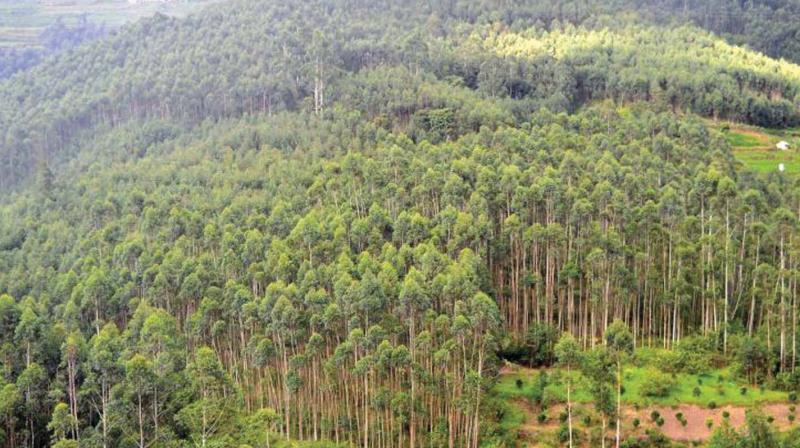Kerala: Forest Department set to consign acacia to history

THIRUVANANTHPAURAM: The Forest Department has taken a policy decision not to replant invasive water-sucking species like acacia, and eucalyptus in stretches where these trees have been felled en masse for pulpwood. The Department has initiated steps to seek the Centre’s approval to deviate from the working plan approved by the Centre, which mandates that only acacia and eucalyptus, or trees that could serve similar purposes, should be replanted in plantations that had cultivated them. The plan is to plant a special type of neem, ‘melia dubia’, in these stretches.
The decision was taken following strong public protest against the cultivation of acacia and eucalyptus. "The Forest Department took a policy decision not to cultivate acacia and eucalyptus after strong public protests erupted when planting was carried out in plantations that bordered habitations," forest minister K Raju said. Steps have been taken to plant the neem saplings in Madathara and Onthupacha sectors, which come within the purview of Ezhamkulam Forest Station under the Punalur Division, and where acacia trees would be felled early this year.
At present, there are 9,340 hectares of Forest Department-owned acacia plantations in Kerala. Besides ‘neem’, other indigenous and flower and fruit-bearing trees varieties like Maruthu (Terminalia paniculata), Ashokam (Saraca asoka), Kanikonna (Cassia fistula), Irumullu (Xylia xylocarpa) and Kambakam (Hopea ponga) are also lined up to be planted in former acacia stretches. Acacia was introduced to the state by the Church in 1983. Soon, it caught on among private planters. By the late eighties, the Social Forestry wing of the Forest Department promoted the cultivation of acacia and eucalyptus along roadsides.
Hindustan Newsprint Ltd also purchased acacia and eucalyptus timber in a big way for pulp production. Within a decade, acacia and eucalyptus were seen as hurting the ecology. The most serious charge was that it sucked underground water and left the soil dry. (Scientists say there is no scientific proof for the charge.) During the last few years, HNL, too, had stopped placing orders for the state’s acacia wood.

